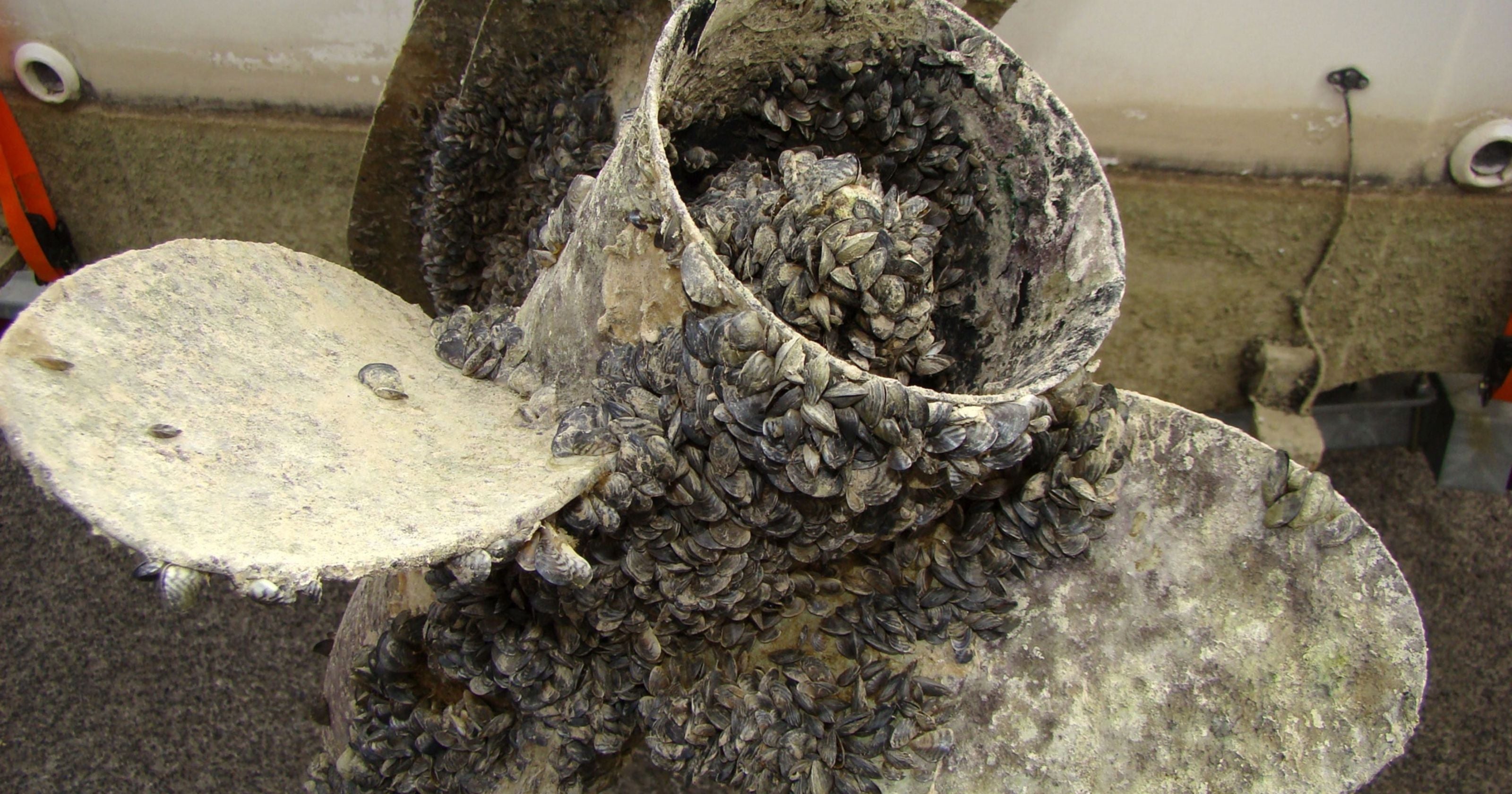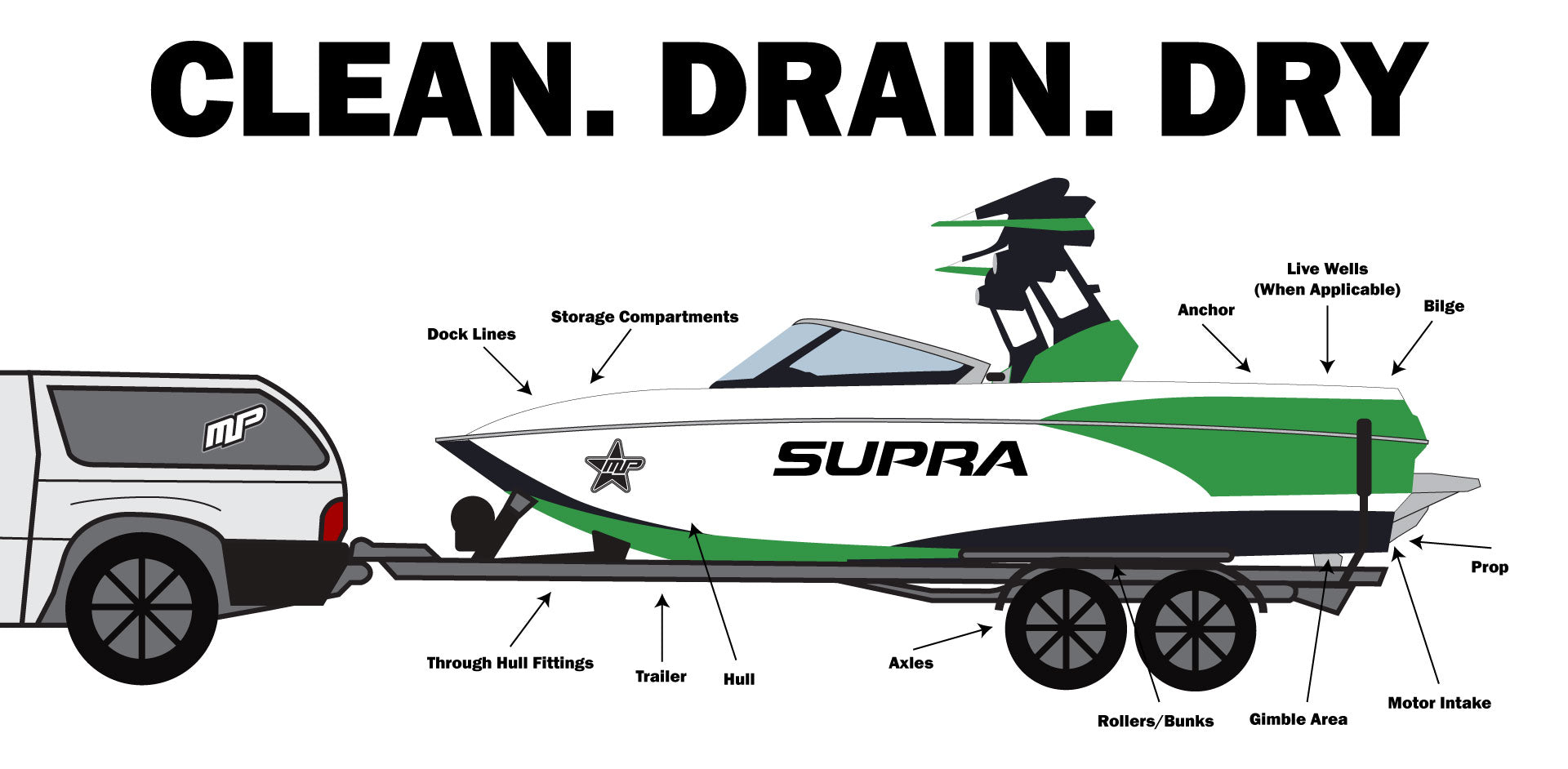
Don’t Spread the STD of the Sea. Here’s How to Decontaminate Your Boat!
Recently, we have received multiple reports from Jordanelle Reservoir concerning Quagga mussels and we decided it would be a good idea to release a guide to properly decontaminating your boat after a visit to Lake Powell or any other affected lakes in the region.
What Are Quagga Mussels?
The quagga mussel is a freshwater mussel that can live up to 3-5 years. This particular species of mussel is extremely invasive and is a major concern for lakes all around the country. The quagga mussel shell is striped or zig zagged and is paler toward the edge of the shell. The quagga mussel, once introduced to a non-native area, can decrease the food sources for other water dwelling species and can permanently alter the food chain in any water source. For every pound of prey fish swimming some affected lakes today, there are an estimated three or four pounds of quaggas clustering on the lake bed.

Quagga mussels aren’t just bad for fish, they’re also very hard on the infrastructure of your favorite lakes and rivers. Quaggas can clog water intakes and take over docks, boats, buoys and can even make some of your favorite beaches impassable.
How Do I Decontaminate My Boat?
Decontaminating your boat is as simple as: clean, drain, dry. If you have been in contaminated water, like Lake Powell, you must follow these steps or have your boat professionally decontaminated before you will be allowed to launch in another body of water.

Clean
When you are cleaning your vessel, be sure that you have removed all plants, animals, mud, and any other foreign objects that are attached to your boat after a day on the lake. You should then thoroughly wash your entire boat including all crevices and hidden areas on your boat and equipment.
Follow these steps to ensure your boat is clean and ready for its next adventure:
- Rinse equipment and boat hulls (With high-pressure hot water when possible)
- Rinse interior compartments with low pressure, hot water (120 degrees)
- Flush motor with hot water (120 degrees) for 2 minutes
Drain
Be sure that after you come off of Lake Powell or another affected body of water that all wells, ballast, and engine cooling water is drained on location. Do not drain your system once you are already at the next lake or river.
You should drain the following areas before leaving water access:
- Motor
- Bilge
- Livewell
- Any other water containing devices including ballasts and engine cooling
Dry
Drying takes longer than you think. You should either dry your boat with a towel or leave your boat to dry in the sun for 5-7 days before you reuse your boat.
For Anglers, an Additional Step of Dispose is Recommended
You should dispose of unwanted bait and fish parts in the trash. If you keep live bait, follow the drain step and be sure that you also drain your bait container and replace the water with spring or tap water.
Should I Use Chemicals?
If you are going to use any type of chemical, be sure that it is the correct cleaning solution for the varying surfaces of your boat. We carry lines of boat cleaning products that are safe for every surface on your watercraft from the upholstery to the hull. However, these chemicals may not be effective against invasive species and the same care and steps will need to be taken above.
Don’t Want to DIY?
Don’t feel confident enough or have the time to decontaminate your boat? No problem. The Jordanelle State Park team can decontaminate your boat for you. All you need to do is call and set up an appointment to have your boat decontaminated to be sure that it is quagga and zebra mussel free before you hit the lake. To set up an appointment, call (435) 649-9540.
Sources:



